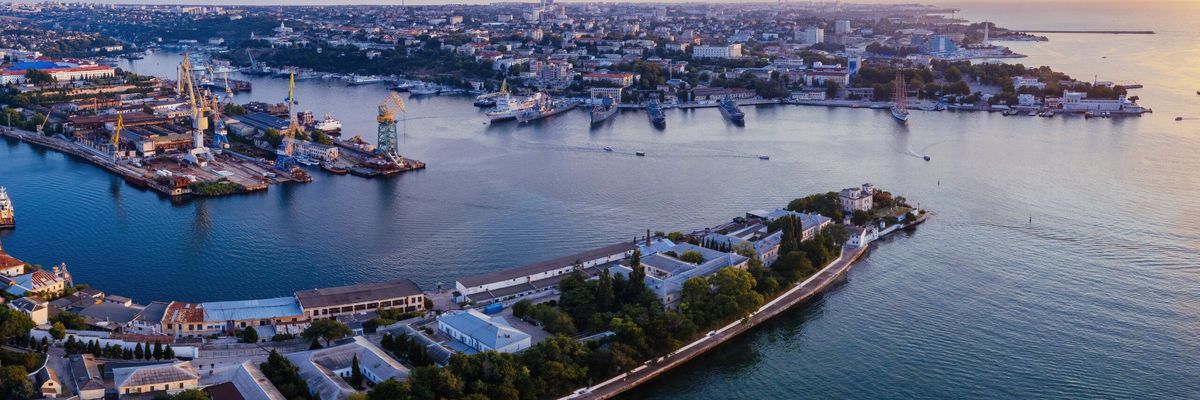The explosions that damaged the Kerch bridge nearly two weeks ago have put the spotlight back on the strategic significance of the Crimean peninsula, which Russia seized from Ukraine in March 2014.
Just before the attack on the bridge, Elon Musk tweeted out a plan for ending the Ukrainian war.
Musk urged Ukraine to recognize Russia’s annexation of Crimea and added an interesting detail — that Crimea should be guaranteed water supplies from Ukraine. The water issue is indeed important to Moscow, but it has passed largely unnoticed in the West. (Musk has denied that he talked directly to the Kremlin about his peace plan.)
What is the root cause of the war in Ukraine? Is it really about Vladimir Putin’s desire to “denazify” Ukraine, or the threat to Russia posed by NATO expansion?
Two simple geographical facts deserve more attention in trying to figure out Putin’s goals in this war: the dependence of Crimea on water supplies from the Ukrainian mainland, and the importance of the naval base at Sevastopol.
Crimea was a vital strategic possession of the Russian Empire following its capture from the Ottomans in 1783. Britain and France went to war in 1854 to try to dislodge the Tsars from Crimea. If Putin wants to restore Russia to its status as a leading European power, something that it achieved under the rule of Peter the Great and Catherine the Great, then he needs Crimea.
One reason why Crimea is so important is that it hosts the natural harbor of Sevastopol — the only deep-water port on Russia’s Black Sea littoral. (The ports of Sochi and Novorossiisk are shallow and require ships to moor offshore.) Without Sevastopol, Russia would not have a home for its Black Sea fleet, which it uses to project power into the Mediterranean — and to wage war in Syria.
Crimea is an arid peninsula with insufficient rainfall to meet the needs of its 2 million people. In 1971, the Soviet Union built the 70-mile-long North Crimea Canal to bring water south from Nova Kakhovka on the Dnipr river. The canal, which continues for another 170 miles to the eastern tip of Crimea, met 70-85 percent of the peninsula’s water needs, with most of the water being used for agriculture.
After the Russian annexation in 2014, Ukraine dammed the canal ten miles north of the Crimean border. Since then, Crimea has been drawing water from the aquifer, which is now running dry and becoming polluted. Climate change has brought decreased rainfall and higher temperatures to the region, exacerbating the water deficit.
Two days after the February 24 invasion, Russia blew up the dam, restarting the flow of water to Crimea. In order to guarantee the supply of water in the long term, Putin wants to control the canal all the way to the Dnipr river, which means occupying the province of Kherson (which was part of the annexations this month).
The annexation of Crimea has been costly for Russia since the peninsula’s economic ties with Ukraine have been severed. The Russian government budget released earlier this month projected that Crimea will cost Moscow 350 billion rubles ($6 billion) over the next three years. The Kerch strait bridge, which opened in 2018, cost $4 billion to build.
The status of Crimea is key to understanding Russia’s war on Ukraine. Back in March, when there was still some hope for a ceasefire and a negotiated settlement, the Ukrainian delegation presented a proposal for a new system of security guarantees that would define Ukraine as a neutral, non-aligned, non-nuclear state, with the status of Crimea to be negotiated within the next 15 years.
With a string of battlefield defeats, and rising public resentment over the mobilization of reservists, such a deal may look increasingly attractive to Putin. That is, if the deal is still on the table: Kyiv is in no mood for capitulating to Russian demands.
















